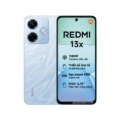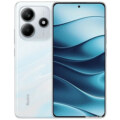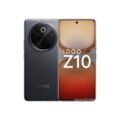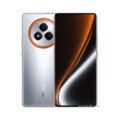- Latest Product
- Product
- Mobiles
- Xiaomi Redmi 10 Power
Xiaomi New Device
-->Xiaomi Redmi 10 Power Full Details
Basic info
| Brand | Xiaomi |
| Model | Redmi 10 Power |
| Category | Smartphone |
| Launch Announcement | April 20, 2022 |
| Launch Date | April, 2022 |
Network Connection
| Network Type | GSM / HSPA / LTE |
| 2G Network | |
| 3G Network | |
| 3G Bands | HSDPA 850 / 900 / 1700(AWS) / 1900 / 2100 |
| 4G Network | |
| 4G Bands | 1, 2, 3, 4, 5, 7, 8, 20, 28, 38, 40, 41 |
| 5G Network | |
| Speed | HSPA 42.2/5.76 Mbps, LTE-A |
| GPRS GPRS (General Packet Radio Service) is a packet oriented mobile data service on the 2G and 3G cellular communication system's global system for mobile communications (GSM), Generally, GPRS is used for the purpose of wireless data transfer, such as sharing pictures and videos or browsing the Internet via a mobile phone connection. |
Body
| Dimensions | 169.6 x 76.6 x 9.1 mm |
| Weight | 203 g |
| SIM Card | Dual SIM (Nano-SIM, dual stand-by) |
| Colors | Sporty Orange, Power Black |
| Build | front Gorilla Glass , back plastic, plastic frame |
| Protection | Gorilla class |
Display
| Display Type Display Technology => A number of display technologies and types used in mobile phones => TFT (Thin Film Transistor), IPS (In-Place Switching), OLED (Organic Light Emitting Diode), AMOLED (Active-Matrix Organic Light-Emitting Diode), Super AMOLED (an even advanced version of AMOLED), Resistive Touchscreen (Resistive touchscreens contain two layer of conductive material with a very small gap between them which acts as a resistance), Capacitive Touchsceen (Capacitive touchscreen technology consists of a layer of glass coated with a transparent conductor) | IPS LCD |
| Size | 6.7 inches |
| Ratio | 20:9 ratio |
| Resolution | 720 x 1650 pixels |
| Pixel Density Pixel Density (PPI) is refers to the concentration of pixels on a particular display, measured in pixels per inch (ppi). Pixel density is calculated by dividing the diagonal pixel resolution of a display by its diagonal size, higher pixel density better display quality. | 269 ppi |
| Multitouch | |
| Display Protection | Corning Gorilla Glass |
| Refresh Rate | 60Hz |
| Features | 400 nits (typ) |
Hardware
| CPU CPU (Central Processing Unit) mostly known as processors, CPU processes instructions in order to carry out certain functions that make your device operate properly. Processors are often described as the brain of computers, smartphones and tablets, Smartphones and tablets rely on processors to carry out their every task, Processors are an incredibly important factor in selecting any type of computing device, including your smartphone. | Octa-core (4x2.4 GHz Kryo 265 Gold & 4x1.9 GHz Kryo 265 Silver) |
| GPU GPU (Graphics Processing Unit) is a single-chip processor designed to rapidly manipulate and alter memory to accelerate the creation of images in a frame buffer intended for output to a display, This includes things such as lighting effects, object transformations, and 3D motion. | Adreno 610 |
| Chipset Chipset is a group of integrated circuits designed to perform one or a more dedicated functions, often with real time computing constraints, Popular smartphones are equipped with more advanced embedded chipsets that can do many different tasks depending on their programming. | Qualcomm SM6225 Snapdragon 680 4G (6 nm) |
| RAM | 8 GB |
| Internal Storage Internal Storage is a data storage space (flash memory) mostly used in smartphones, tablets and other electronic devices where operating system, apps, music, photos, videos, files and other user data Is stored. | 64/128 GB |
| Memory Slot | Yes, microSDXC (dedicated slot) |
| Version | 8/128 GB |
| Storage Type | UFS 2.2 |
Software
| Operating System OS => Every computer system run on a base software called Operating System (OS). Operating System controls all basic operations of the computer (such as smartphone, PDAs, tablet computers and other handheld devices). The Operating System allows the user to install and run third party applications (apps), apps are used to add new functionality to the device. | Android |
| Version | 11 |
| User Interface UI or user interface of a device is the look and feel of the on-screen menu system. How it works, its color scheme, how it responds to button presses, all of these things are part of the user interface. | MIUI 13 |
Main Camera
| camera |
50 MP, f/1.8, 26mm, PDAF (wide) 2 MP, f/2.4, (depth) |
| Features | LED flash, HDR, panorama |
| Video | 1080p/30fps |
Selfie Camera
| camera | 5 MP, f/2.0 |
| Video | 1080p/30fps |
Multimedia
| Loudspeaker | Yes |
| 3.5mm Jack |
Connectivity
| Wi-fi Wi-Fi is a popular wireless networking technology using radio waves to provide high-speed network connections that allows devices to communicate without cords or cables, Wi-Fi is increasingly becoming the preferred mode of internet connectivity all over the world. | Wi-Fi 802.11 a/b/g/n/ac, dual-band, Wi-Fi Direct |
| Bluetooth Bluetooth is a wireless communications technology for exchanging data between mobile phones, headsets, computers and other network devices over short distances without wires, Bluetooth technology was primarily designed to support simple wireless networking of personal consumer devices. | 5.0, A2DP, LE |
| Wi-fi Hotspot | |
| FM Radio | |
| USB | USB Type-C 2.0, USB On-The-Go |
| OTG | |
| GPS | |
| NFC NFC (Near field communication) is a set of standards for smartphones and similar devices to establish peer-to-peer radio communications with each other by touching them together or bringing them into proximity, usually no more than a few inches. |
Security
| Fingerprint | Fingerprint (rear-mounted) |
| Sensors Sensors are electronic components that detects and responds to some type of input from the physical environment. The specific input could be light, heat, motion, moisture, pressure and location, The output is generally a signal that is converted to use in computing systems, a location sensor, such as a GPS receiver is able to detect current location of your electronic device. | accelerometer, proximity |
Power
| Battery Type | Li-Po non-removable |
| Battery Capacity | 6000 mAh |
| Battery Charging |
Fast charging 18W |
| Fast charging | |
| Wireless Charging |
Price
| United States Price in United States. price us | 8/128 GB- 230$ (About) |
Xiaomi Redmi 10 Power Specifications
| Model | Redmi 10 Power |
| Camera | 50+2 MP and 5MP |
| Processor | Snapdragon 680 4G (6 nm) |
| Memory | 8/128 GB |
| Battery | 6000 mAh |
Xiaomi Redmi 10 Power Release and Network
The smartphone was released by the Xiaomi brand. This phone launched on March 21, 2022. The mobile has a network connection of 2G, 3G, 4G support. Its speed is HSPA 42.2/5.76 Mbps, LTE-A. Redmi 10 Power has network band support 2G- GSM 850 / 900 / 1800 / 1900 – Dual sim, 3G- HSDPA 850 / 900 / 1700(AWS) / 1900 / 2100, 4G- LTE.
Xiaomi Redmi 10 Power Display and Body
The smartphone has a 6.7-inch IPS LCD display. Its resolution is 720×1650 pixels and 269 ppi density. Redmi 10 Power body dimensions 169.6 x 76.6 x 9.1 mm and weight 203 g. Redmi 10 Power has protection as the front (Gorilla Glass 3), plastic frame, plastic back. This phone is available in colors Graphite Gray, Ocean Blue, Mint Green.
Xiaomi Redmi 10 Power Processor / RAM / ROM
The smartphone is used CPU Octa-core (4×2.4 GHz Kryo 265 Gold & 4×1.9 GHz Kryo 265 Silver), chipset- Qualcomm SM6225 Snapdragon 680 4G (6 nm), And with that comes Adreno 610 graphics. Redmi 10 Power comes in 1 variant. The memory is 64/128 GB Internal Storage and 4/6 GB RAM. Redmi 10 Power smartphone runs in Android 11, MIUI 13.
Xiaomi Redmi 10 Power Camera
The smartphone has main cameras for taking beautiful pictures 50 MP, f/1.8, 26mm (wide), 1/1.52″, 0.7µm, PDAF + 2 MP, f/2.4, (depth). The feature is LED flash, HDR, panorama and you can video record at 1080p/30fps. The phone has a 5 MP, f/2.0 camera for taking selfies, The feature is that you can video record at 1080p/30fps.
Xiaomi Redmi 10 Power Battery
The smartphone is for powering the phone’s Li-Po 6000 mAh non-removable battery. And there is also a quick charge for the 18W fast-charging system.
Note: Xiaomi Mi Redmi 10 Power all information does not guarantee 100% accurate.














